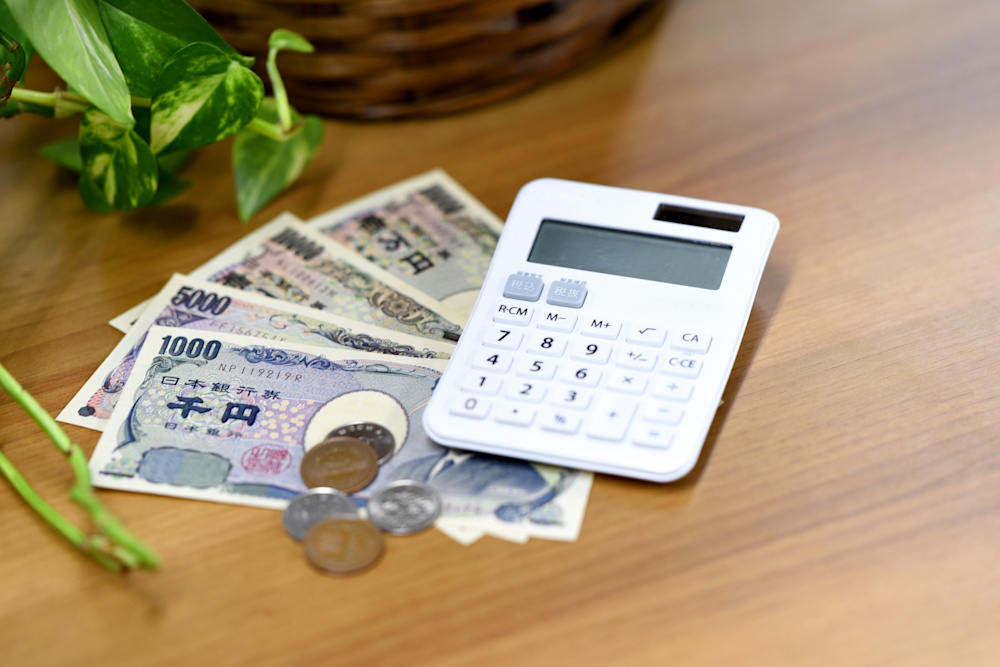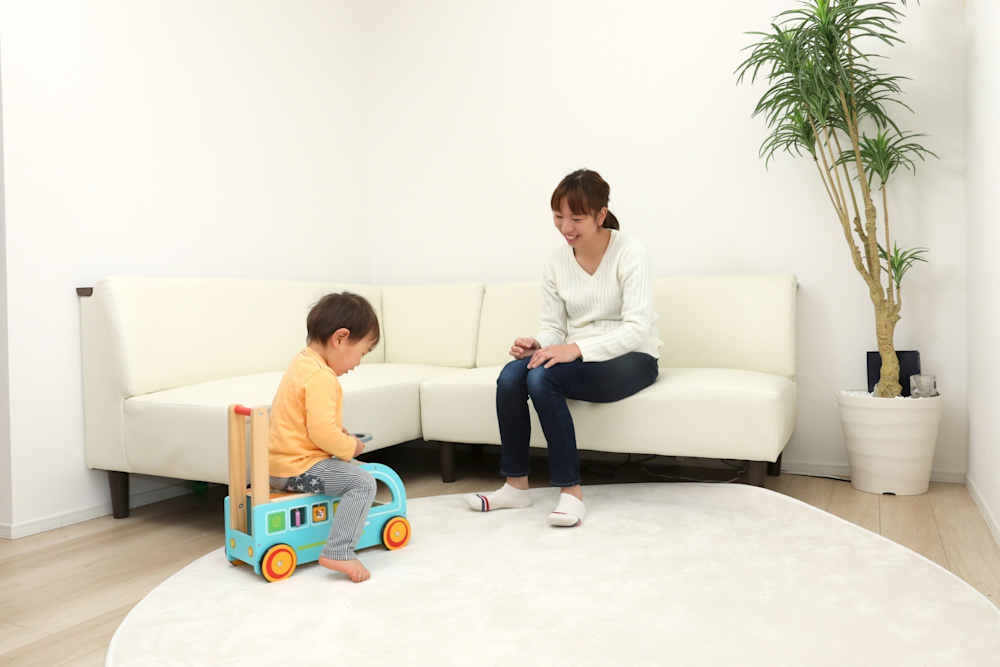Updated March 5, 2025
Employee Benefits in Japan: An Overview
Japan’s employee benefits system, called Fukurikousei (福利厚生), is an essential part of what makes working here unique. These benefits go far beyond just ticking legal boxes—they’re about creating a supportive and rewarding environment for employees.
There are two main types of employee benefits: statutory benefits, which are required by law, and non-statutory benefits, which companies provide voluntarily to make their workplace more attractive.
In this article, we’ll discuss the various employee benefits in Japan and how these perks make for a fulfilling work experience.
First, let’s talk about the statutory or mandatory employee benefits in Japan, which set the bare minimum you can expect as an employee in Japan.
Statutory Employee Benefits in Japan For Foreigners
Statutory benefits are the basic benefits every employer in Japan must legally provide their staff. Think of these as the foundation of employee support, ensuring that workers are protected in key areas like health, pensions, and employment stability.
Let’s examine what’s included in statutory employee benefits and how these benefits affect the everyday lives of employees in Japan.
Health Insurance (健康保険, Kenkou Hoken)
Health insurance is, arguably, the most important statutory employee benefit. All residents in Japan are required to have health insurance, which covers non-occupational illnesses and injuries.
For employees, this is managed through the employee's health insurance system, which employers must offer to all full-time staff and part-time employees working more than 3/4 of full-time hours. The following part-time employees are also eligible:
Work 20 hours or more per week
Earn 88,000 yen or more monthly
Are employed for over two months
Are not students (different rules apply)
The way the system works is simple: Employers and employees split the premium costs, and insurance covers 70% of medical expenses.
Thanks to this insurance, participants can also claim benefits for high-cost medical care and receive compensation for lost wages during medical leave. If an individual cannot work due to medical treatment, they are entitled to compensation equivalent to 2/3 of their standard daily wages.
This system is complemented by the national health insurance plan, which primarily serves self-employed individuals, retirees, and their dependents, ensuring universal healthcare access across the country.
If you’d like to learn more, check out our guide to Japan’s healthcare system after this.
Welfare Pension Insurance (厚生年金, Kousei Nenkin)
In Japan, all employees are enrolled in the employee's pension insurance, which is mandated by law. This system is designed to ensure financial support during retirement, and the premiums are shared equally between employers and employees.
The amount of pension benefits an individual receives is directly tied to how much they’ve contributed over the years, making it more substantial than the basic national pension insurance plan.
Employees can begin receiving old age pension benefits at 65, as long as they’ve contributed to the system for at least 10 years. The system also provides disability pensions for those with serious health challenges due to injury or illness, with benefits categorized into three levels depending on the severity of the condition.
Furthermore, the survivor's pension offers financial support to eligible dependents if an insured individual passes away, provided they’ve made the required contributions.
To learn more about pensions, we also have a detailed guide about the pension system in Japan.
Employment Insurance (雇用保険, Koyou Hoken)
Employment insurance is a crucial safety net for workers. It provides financial support during periods of unemployment as well as subsidies for career training, making it basically unemployment insurance.
The system covers almost all employees in Japan, including temporary workers who work over 20 hours a week and have a contract for more than 31 days. Like health insurance, this insurance is also covered partially by the employer and the employee.
All that being said, there are exceptions to this benefit. For instance, company directors and expatriates planning to return to their home country after employment termination may not be eligible for coverage. So, be sure to read more on unemployment in Japan in our guide to find out who is and isn’t eligible for it.

Worker’s Compensation Insurance (労災保険, Rousai Hoken)
Workers' compensation insurance is a safety net designed to protect employees if they experience work-related injuries, illnesses, or accidents, including those that occur on the way to work.
The insurance covers a wide range of costs, such as medical bills, lost wages, and even disability or death benefits, giving employees peace of mind in tough situations.
What makes this unique is that employers handle 100% of the premiums, unlike the other benefits we have explored so far, so workers don’t have to worry about the cost.
This insurance also doesn’t cover company directors by law, who are encouraged to look into personal accident policies instead to ensure they have similar protection.
Long-Term Care/Nursing Insurance (介護保険, Kaigo Hoken)
As Japan’s population ages, nursing insurance has become essential to meet the increasing demand for elder care in the country.
This insurance system provides access to a variety of long-term care services, including home visit support by care attendants and even stays in nursing homes.
This insurance is mandatory for all residents aged 40 and older and is classified into two categories: Class 1, for those aged 65 and above, and Class 2, for those aged 40 to 64.
To begin receiving these services, individuals must first be officially certified as in need of care. As individuals share the costs across society, this program allows older adults to have peace of mind and get the care they need, even when they can’t generate income.
Child Rearing Contribution (子ども・子育て拠出金, Kodomo/Kosodate Kyoshutsukin)
As raising kids can be expensive, Japan has a system in place to help parents out.
The childcare contribution system is essentially a national fund that employers partly pay for to provide financial support for families and make child rearing a little less overwhelming.
The best part about this benefit is that employees don’t have to do anything—there are no sign-ups, no extra payments, and the entire contribution comes from the employer.
This setup helps parents cover the cost of raising their children while ensuring they have a stable and supportive work environment.
It applies to all parents with children under 18 years old before the end of the fiscal year (March 31st). The benefit amount is:
15,000 yen for children under 3 years old
10,000 yen for children 3 years old and older up to high school age
30,000 yen for the third child and any after
Payments happen six times a year, on even-numbered months (February, April, June, August, October, and December).
This initiative plays a big role in promoting work-life balance in Japan, making it a more family-friendly country to work in. To find out which companies provide the best family support, check out our post on top family-friendly tech companies in Japan.
Non-Statutory Japanese Employee Benefits
Non-statutory benefits aren’t required by law, however, many companies offer them to create a better work environment and attract top talent. These perks can make a huge difference when choosing an employer, so let’s break down some of the most common benefits offered in Japan.
Health Benefits
Statutory health insurance is a thing, but many companies go beyond the basics to support their employees’ health.
Some companies offer gym memberships, provide access to mental health consultations, and even help cover costs for programs to help employees stop smoking.
In fact, some businesses even offer healthy meals to promote healthier lifestyles. Plus, although basic medical checkups are normally covered by employee health insurance, many employers nowadays also cover advanced screenings as part of their benefits.
Commuting Benefits
Most companies in Japan cover commuting costs, whether it’s a reimbursement or a fixed monthly allowance.
Employees often get their train or bus fares paid for, and sometimes, parking and fuel costs for those who drive to work.
Some companies even offer a short-distance allowance to encourage employees to live closer to the workplace, reducing commute time and increasing efficiency.
Housing Benefits
Whether you’re planning to rent or buy a home, housing is expensive regardless. So, many companies step in with financial assistance to relieve their employees of their burden, even if it’s partially.
This means housing allowances really vary by company. Some employers only cover a fixed portion of your rent, while others base the subsidies they provide on a percentage of living costs.
Occasionally, some firms also provide company-owned dormitories at reduced rates for employees. These can especially come in handy if you’re just getting set up in a new city or if you just moved to Japan.
Meal and Break Benefits
Companies in Japan know that food and break time perks can significantly improve workplace satisfaction. So, they often offer subsidized meals, in-office cafeterias, free snacks, or even lunchbox delivery services to make their workplaces more attractive.
In fact, some employers even go the extra mile by providing enhanced break spaces— think nap pods, massage chairs, and relaxation areas.
Event Benefits
Company events not only help build camaraderie among employees but also help reduce stress. This is deemed important among even the most traditional Japanese companies.
It’s common for traditional companies to plan company trips, for instance, with some employers even covering travel abroad or trips to hot springs (onsen).
Some workplaces also organize events such as athletic competitions, concerts, and social outings designed to foster team spirit, like Nomikai.
Skills Improvement Benefits
Nowadays, career growth has become a priority for many workers. So, companies are increasingly introducing more programs to help employees develop new skills and sharpen their current ones further.
Some companies even offer cash bonuses to encourage employees to obtain specific qualifications.
Even without a bonus, the skill improvement benefits usually include financial aid for books, tuition fees for courses and seminars, and certification exams.

Childcare, Nursing, and Family Benefits
That's why some forward-thinking companies now offer on-site daycare, letting employees bring their little ones to work.
Other businesses take a different approach, providing childcare subsidies to help with costs. These perks can vary quite a bit from one company to the next.
To support workers with family responsibilities, many firms also offer family allowances. These often include monthly payments for spouses and children.
Beyond financial help, some companies go the extra mile. They provide company-sponsored medical check-ups and stress-management programs to keep their employees healthy and happy.
While not a universal practice, some Japanese companies, including some listed on the Japan Dev job board, also offer one-time condolence/congratulations payments for major life events. These can include funerals, weddings, births, and medical emergencies.
Property and Savings-Related Benefits
Another additional benefit offered by some companies is related to your savings. Some companies help employees build financial security through savings programs like the Zaikei Savings Scheme, for instance.
This system allows employees to set aside a portion of their salary into a dedicated savings account, which often comes with tax advantages.
In addition to these, some companies may offer other property-related benefits, such as home loan subsidies.
Lastly, some companies also offer employee stock option plans, which make employees feel like true partners.
Leave Benefits: Annual Paid Leave and Other Mandatory Employee Benefits in Japan
In addition to the statutory and non-statutory benefits, employees in Japan are entitled to paid time off, with additional types of leave available, too, depending on the situation.
Let’s break them down:
Paid Leave (年次有給休暇, Nenji Yuukyuu Kyuuka)
If you’re a full-time worker, meaning you work 30 hours or more per week, you’re eligible for paid leave, which increases the longer you stay with your company.
Starting at 10 days after six months of continuous work, this can grow to a maximum of 20 days if you’ve been with the company for 6.5 years or longer.
However, paid leave rules work a little differently for part-time employees who work less than 30 hours a week.
Your vacation days in Japan depend on how often you work and how long you've been with the company. For example, if you work one day a week, you can get 1 to 3 days off per year, depending on the number of years you’ve been with the company.
The amount of yearly leave you get increases if you work more:
For two workdays a week: 3 to 7 days off per year
For three workdays a week: 5 to 11 days off per year
For four workdays a week: 7 to 15 days off per year
The exact number of days off depends on how long you've been with the company. The more years you work, the more vacation days you earn.
Maternity Leave (産前産後休業, Sanzen Sango Kyuugyou)
Another statutory leave benefit is provided to new mothers. Expecting mothers are allowed to take time off starting six weeks before their due date and up to eight weeks after giving birth. This allows them to recover and adjust to life with their newborn.
That said, if they feel ready to return to work sooner, employees can do so from six weeks after delivery— but only with the doctor's approval to ensure that they’re fit to resume work.
Childcare Leave
Parents of infants under one year old can take extended childcare leave, or 育児休業 (Ikuji Kyuugyou), to spend time with their little ones.
For mothers, this typically begins after maternity leave, while fathers can take their leave right away after the baby is born.
In addition to this, another leave benefit with a similar name is 育児休暇 (Ikuji Kyuuka), which is for parents raising kids up to elementary school age. This provides additional days of leave per year to handle childcare needs—whether it’s attending school events, taking care of a sick child, or just spending quality time together. The number of days you get depends on your company.

Nursing Care Leave
If you care for a sick or elderly dependent who requires ongoing assistance, you can take nursing care leave, or 介護休業 (Kaigo Kyuugyou). This ensures employees can provide the necessary support to their loved ones.
Another leave benefit with a similar name is 介護休暇 (Kaigo Kyuukya), and it allows employees to take up to five days off per year for short-term caregiving needs.
It’s meant to help employees who are taking their relatives to medical appointments or handling urgent care situations.
The main difference between these benefits is their duration. While the first nursing care leave we introduced (Kaigo Kyuugyou) is provided for extended periods, the second one is only issued for a few days on occasion.
Menstruation Leave (生理休暇, Seiri Kyuuka)
Female employees who experience severe discomfort during their menstrual cycle can take time off from work.
Whether it’s paid or unpaid depends on the company, but the right to take time off is legally protected either way. This means that taking menstruation leaves, even if unpaid, cannot be considered legal grounds for your dismissal.
Medical Check-ups (健康診断, Kenkou Shindan)
Staying on top of your health is important, and Japanese companies recognize this. In fact, in Japan, companies quite literally have to provide the medical checkups themselves—a neat little treat of the country’s generous labor laws.
For most companies, providing a medical check-up means working with a private clinic or a hospital where employees can go directly. That said, some companies might let their employees choose the medical facility and then handle their bills.
Additional Holiday Benefits
In addition to the legally required paid leave, companies are introducing special time off benefits to help employees balance their work and life better. Some of the most common ones include:
Anniversary leave: Leave granted for wedding anniversaries and sometimes children’s birthdays.
Birthday leave: A day off during your birthday month.
Summer and winter leave: Additional days off for seasonal holidays. Some of these leaves are unpaid, but they don’t negatively impact attendance records or performance evaluations.
Refresh Leave - リフレッシュ休暇 (Rifuresshu Kyuuka): Extra vacation days, given based on years of service.
Personal Leave - 慶弔休暇 (Keichou Kyuuka): Time off for important life events, such as weddings, funerals, or childbirth.
Final Word on Employee Welfare in Japan for Foreigners
In Japan, job benefits go beyond just vacation time. There's a well-oiled system in place, aimed at helping workers balance their work and personal lives.
While that wraps up our talk on employee perks, we've got more helpful info for you. For starters, check out our article on companies that offer language training and interpretation support.
Want to know about businesses that help you grow your skills? Take a look at our guide to companies providing skill development benefits in Japan.
Finally, if you’re looking for a company in Japan that offers all of the benefits introduced today, check out the listings on the Japan Dev job board where we feature some of the best modern IT companies in Japan. Engineers, designers, and PMs will find plenty of fresh, exciting offers that are regularly updated by our team.
Get Job Alerts
Sign up for our newsletter to get hand-picked tech jobs in Japan – straight to your inbox.







